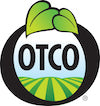Do You Have The Right To Know if Your Food Contains GMOs?

Product packaging is a nonstop highway of both useful and useless information about our food. Marketers deconstruct ingredients in order to help them sell more truckloads. But one thing we don't see volunteered by any company is when their food products contain genetically modified organisms (GMOs) or ingredients. Why is that? Don't we have a right to know if our food contains GMOs?
Stroll through any supermarket aisle and what you might notice is that every package of food seems to be telling you something: Low Fat. That could be good. Maybe healthy—but also, maybe not. How about: Rich Source of Calcium? Ah, strong, bones. Quite important—thanks for adding it! Bold New Flavor. Not necessarily important, but it is good to know, especially if the old flavor always left you craving more…boldness. You get the picture, right?
Our food supply is loaded with certifications, from foods that meet religious requirements to whether or not it was grown organically. Other foods tell us if they contain real fruit, low amounts of sodium or few trans fats—these are all important factors to you, the consumer, when making your purchasing decisions. And as more consumer research indicates, you also seem to want to know whether or not your food comes from genetically modified ingredients.
Fifty countries around the world including most of Europe, South America and Asia—require labeling or enforce strict regulations on foods containing genetically modified organisms. Why do they do this? Because the science simply isn't there to prove the long-term safety of consuming genetically modified foods and the pesticides those plants are routinely exposed to (or produce themselves).
In the recent documentary Genetic Roulette: The Gamble of Our Lives, writer, producer and director, Jeffrey Smith, looks at the rise in digestive disorders in the U.S. over the past two decades. The numbers parallel the increase in foods containing GMOs. Leaky Gut Syndrome, Irritable Bowel, Celiac Disease and many more digestive diseases have risen dramatically. Genetically modified corn—which is now present in nearly 80 percent of processed food—contains the Bt toxin (Bacillus thuringiensis), which kills insects by exploding their stomachs. No testing has been done on the human safety of exposure to Bt toxins.
Other research has linked GMOs and the pesticides used on them (like glyphosate, commonly marketed as Monsanto's Roundup) to major organ damage, neurological and reproductive issues as well as certain types of cancer.
Additionally, opting for non-GMO foods means you're also supporting a healthier environment. Pesticide use is on the rise, mainly due to the needs of GMO crops designed to resist heavy applications of toxic chemicals.
The USDA and FDA inspect foods for contamination risks. Organic growers have to undergo rigorous certification processes. But GMOs remain unlabeled and pervasive in our food supply.
Labeling GMOs is not a ban—it won't stop producers from making them. But it will give you the right to choose foods you feel safe eating.
Keep in touch with Jill on Twitter @jillettinger
Resources:
http://geneticroulettemovie.com/
Image: Beige Alert
Leave a comment
Comments will be approved before showing up.


